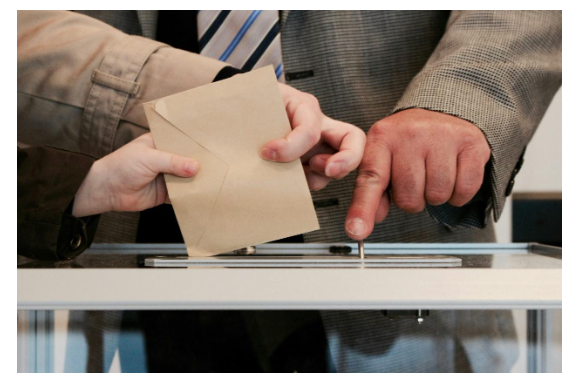Crypto ventures have been pouring millions into this year’s election
The presidential contest makes waves across every industry, and the cryptocurrency one isn’t spared. In fact, it’s been one of the most invested ones in this year’s election – as it was regarding previous political battles of high stakes. Cryptocurrency businesses have injected millions into this year’s federal elections in hopes the chosen party will support their initiatives to bring digital money to more people’s notice and improve the landscape and users’ safety and protection.
First, cryptocurrency companies, as are some of the savviest investors out there, are doing well enough. Besides mammoths Bitcoin and Ethereum, other cryptos are doing impressively well after the industry stumbled two years ago. The BNB price prediction 2030, for instance, instills confidence in both crypto-oriented businesses and investors, so the latest news is anything but a shocker. Secondly, the rather gloomy stance taken by the Biden administration against crypto is also an old hat. Both presidential competitors court the cryptocurrency vote, with sounding fame having been developed for Trump and the big-wig’s administration.
Fast-forward to today, a hotspot where this industry is heating up like nowhere else makes all the headlines – Washington, DC. According to data from NGO Citizen, crypto corporations dumped no less than $119MN straight into affecting the federal elections, with a non-partisan super political action committee (PAC) focused on pushing pro-crypto competitors up and eliminating skepticism taking the lion’s share of contributions. Other key findings turn the heat up and have cascading effects these days, with potential effects lingering down the road.

Crypto corporations seek to have some bearing on elections
Crypto businesses have long left their mark on the political landscape, and this truth goes beyond the many changes in perspectives of some of the world’s most influential people. This time, a significant focus lies on bringing crypto to lawmakers’ notice and stopping their tabling of regulating the assets’ use.
Many governments are wary of these renowned and far-reaching financial instruments, partly because they’re still developing and associated with unlawful transacting practices. Blockchain-based digital currency is decentralized and often misled for an anonymous, even pseudonymous, form of money. Experts beg to differ. Cryptocurrencies, with Bitcoin taking the lead, are traceable, and some addresses can disclose crucial data about the individuals initiating the crypto transfer.
However, aspects like these aren’t enough for watchdogs to sit on the bench and tax or confiscate such investments. Oversight legislators need to make crypto a top issue on their list. Many famous voices in the cycle reinforce the idea of digital asset regulation, with US Secretary of the Treasury Janet Yellen addressing the topic regularly.
A need for a clear framework for practical crypto regulation
Congress must enact a transparent and pertinent framework for digital money regulation. The cryptographic blockchains permit individuals to send and receive money instantly via the internet, attracting more and more enthusiasts to the table and opening room for scams, spoofs, hacks, and far-reaching cybersecurity threats.
This technology proved it can transform industries of any type and market size. From the medical sector to entertainment to communications, it’s almost impossible to think of an industry that’s unimpacted by crypto. Donations in Bitcoin? Yes, NGOs receive cryptocurrency, too.
American markets are reputed for driving change that eventually impacts all parts of the world, primarily because of sensible and straightforward regulatory and legal frameworks such as those regarding capital markets. Crypto is regulated chiefly only when a sale is a sale of a security under federal or state law and when the transaction classifies the vendor as a money services business under federal law.
Crypto has never spent so much money on an initiative
Crypto corporations spent more money on swaying this year’s elections than any other similar event. This enormous number denotes that cryptocurrency accounts for nearly 50% of business political donations in this area. Two years after Bitcoin’s debut in 2010, spending reached a record $129MN, exceeding the biggest payer to date, fossil fuels. Since the Citizens United ruling, this amount now accounts for 15% of the entire corporate contribution to date.
Crypto’s rising political quest and unsatiated appetite to flaunt greenbacks in legislators’ faces speaks to the supremacy built in the days up to the present moment. All of this occurs despite the unceasing efforts to finally attract and convince the wider audience, which remains a target market for the underlying industry.
One in three Americans in a Pew Research survey were reluctant toward crypto due to cybersecurity threats and its recent emergence. Crypto’s standing took a hit when FTX collapsed, and the aftermath lingered for a while.
Nevertheless, more and more retailers now consider adding crypto payments at some point in the future to not be strangled by a bumming demand for such options. Some retailers already allow buyers to pay with Bitcoin, Ethereum, and other cryptos despite being renowned as a tool for speculative investment.
Crypto corporations have strengthened their efforts and lobbied to see a pro-crypto politician taking the lead, hoping to maximize the sector’s expansion. This industry refuses any low blow and seeks to stress that crypto isn’t a hype or fad, the influx of greenbacks standing as proof.
Who will be in charge?
More questions remain until crypto is used correctly and to everyone’s advantage. One of the hottest debates remains: which agency is best to regulate and supervise digital currency? Securities like bonds and stocks must be registered with the SEC, which comes with boundless regulations to protect possessors. Nevertheless, as far as the agency is concerned, existing laws have already placed most cryptos firmly within its jurisdiction.
Arizona lacks crypto-specific laws, while in Colorado, the Division of Banking launched crypto-oriented interim guidance six years ago. Delaware permits corporations to keep records of transactions on a blockchain or similar technology, similar to how Pennsylvania managed to do so in the past.
The situation across the country differs from state to state, calling for a clearer, all-encompassing framework that works for every situation.
